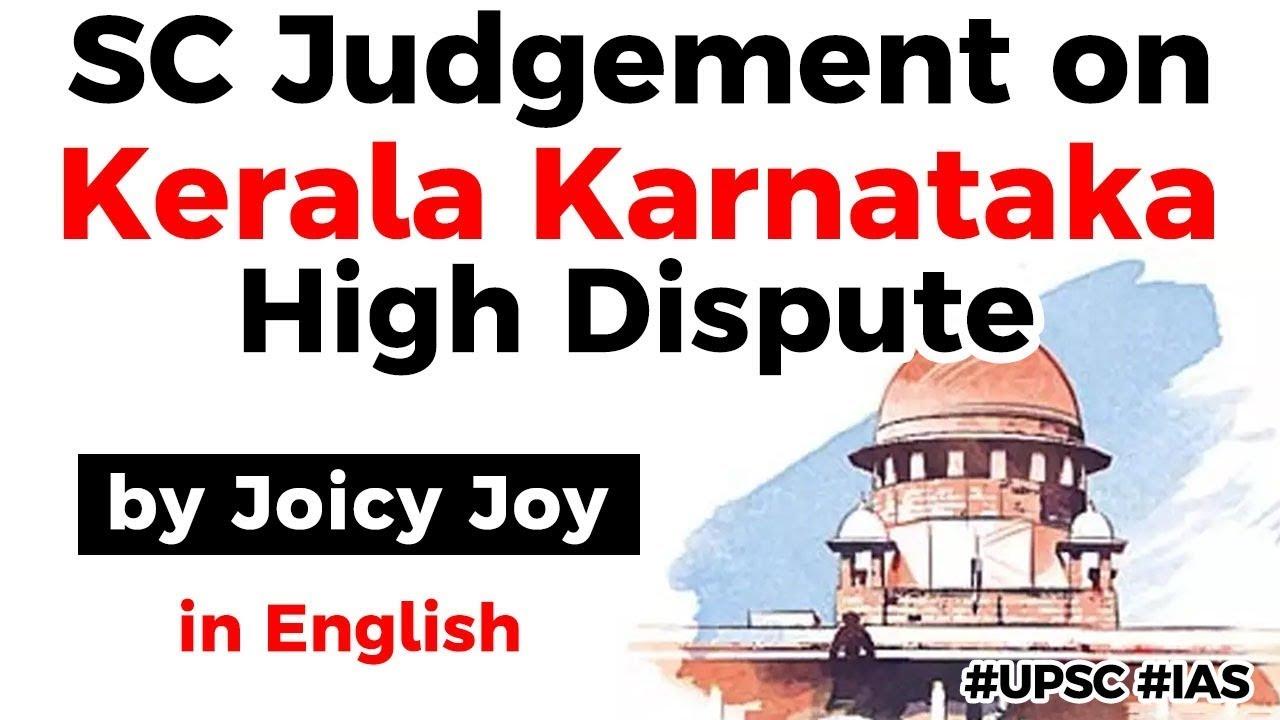Table of Contents
CURRENT AFFAIR
- The Supreme Court (SC) has asked the governments of Kerala and Karnataka to amicably settle the dispute over the closure of roads linking Kasaragod district (Kerala) to Mangaluru (Karnataka).
- The SC bench took up via video conferencing an appeal against the Kerala High Court order directing the opening of roads so that patients from Kasaragod can access emergency medical care facilities in Mangaluru.
- Karnataka contended that the opening of the roads would lead to law and order issues.
Highlights of the Judgement
- On Kerala High Court’s Order: The bench did not stay the Kerala High Court order but asked the states not to precipitate matters.
- Centre Mediation: The Supreme Court asked the Centre to discuss the matter with the states and formulate parameters for passage of patients for urgent medical treatment.
Kerala High Court’s Order
- The Kerala High Court had directed the Centre to ensure that blockades put up by Karnataka on national highways connecting it to Kerala are removed forthwith in order to facilitate free movement of vehicles carrying people for urgent medical treatment between the two states.
- Roads that connect Mangalore to Kasaragod are part of the national highway network. Hence, it is the duty of the central government to ensure that roads are blockade-free.
- Denial of health services amounts to infringement of right to life under Article 21 and also affects the right to freedom of movement under Article 19(1) (d) of the Constitution.
Court’s Territorial Jurisdiction
- Before the High Court, Karnataka contended that the court would be exceeding its territorial jurisdiction if it issues any direction.
- But the court rejected this and said that when a High Court of a state finds and declares the actions of the government of another State to be illegal and unconstitutional, the said state government would be obliged to defer to the said declaration of law by a Constitutional Court of this country, notwithstanding that the said court is situated beyond the territorial limits of the said state.
Basis of the Order
- The High Court ruling came in the wake of the death of seven patients from Kasaragod who regularly availed hospital facilities in Mangaluru.
- The relatives of the deceased alleged that they could not cross the border due to the blockade imposed by Karnataka.
Background
- Even since lockdown was announced on March 25 to arrest the spread of coronavirus, most states sealed off their inter-state borders to restrict movement of people.
- While essential services and goods vehicles were allowed to cross borders, as per the guidelines, some villages along the Karnataka side of the border with Kerala created a blockade, completely restricting movement of even essential services.
- Many roads connecting Kerala to Karnataka, particularly the roads from Dakshina Kannada and Kodagu districts of Karnataka linking Kasaragod in Kerala, have been blocked.
Latest Burning Issues | Free PDF

























 WhatsApp
WhatsApp